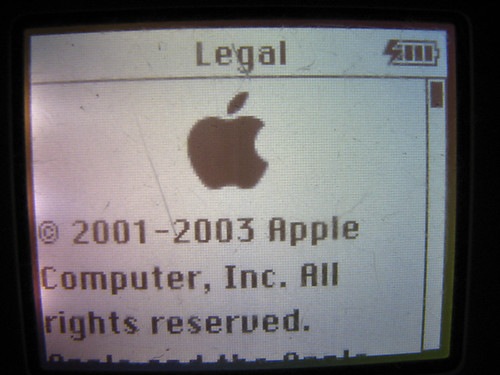DUOS expands AI capabilities to help seniors apply for assistance programs
It will complete and submit forms, and integrate with state benefit systems
Read more... Since 2001, Apple has sold over 220 million iPods, so it's more than a little expected that somebody would try to squeeze some cash out of the Cupertino company's massive success.
Since 2001, Apple has sold over 220 million iPods, so it's more than a little expected that somebody would try to squeeze some cash out of the Cupertino company's massive success.
In 2006, two men filed a class-action lawsuit against Apple, accusing the iPod maker of manufacturing a defective MP3 player, one that, with the ability to reach levels of 115 decibels, could possibly expose users to dangerous sound levels capable of causing permanent hearing loss. The suit complained that iPods lacked any sort of decibel monitor that a user could employ to ensure that they would be listening at a reasonable volume.
On Wednesday, a federal appeals court reaffirmed an earlier ruling from 2008, in favor of the defendants, asserting that the men showed no evidence of "actual or imminent" hearing loss resulting from the use of an iPod. Further, the judges reiterated that Apple includes a warning with all sold iPods that reminds users of the dangers of listening at high volumes.
"The plaintiffs do not allege the iPods failed to do anything they were designed to do nor do they allege that they, or any others, have suffered or are substantially certain to suffer inevitable hearing loss or other injury from iPod use," wrote Senior Judge David Thompson. "At most, the plaintiffs plead a potential risk of hearing loss not to themselves, but to other unidentified iPod users."
Unfortunately for the plaintiffs, as Apple's lawyer pointed out, many everyday products offer the user potential risks, if used incorrectly. For example, a great number of cars can happily (and unsafely) zoom right past the speed limit, and yet, car manufacturers face no danger of accusations of selling defective vehicles.
Looks like nobody will be benefiting from those millions of iPods sold except Apple itself.
It will complete and submit forms, and integrate with state benefit systems
Read more...The bill would require a report on how these industries use AI to valuate homes and underwrite loans
Read more...The artists wrote an open letter accusing OpenAI of misleading and using them
Read more...